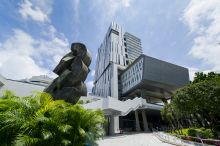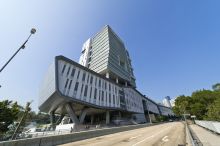The programme provides well-structured training for IT professionals who want to keep abreast with the dynamics in multimedia and information technology. It aims at equipping students with in-depth knowledge of the state-of-the-art multimedia information technology and the necessary skills to meet the needs from the community. On completion of the programme, students with different technical backgrounds and aspirations can:
- have a strong theoretical foundation in multimedia systems and applications, mobile computing, internet computing and networking;
- acquire analytical ability that enables them to conduct high-level research and development in the rapidly changing IT industry;
- enhance their capacity to continue professional and career development
Programme Intended Learning Outcomes
With the global trend towards the adoption of the outcomes based approach to education, City University of Hong Kong embarked on the Outcomes-based Teaching and Learning (OBTL) project to signify its determination to continue to enhance the education experience for its students. All Master's programmes and courses of EE have adopted this outcomes based approach since 2009, with some of them in pilot runs in earlier years. Sets of intended learning outcomes on both course level and programme level have been developed. Course Intended Learning Outcomes (CILOs) of individual courses and their constructive alignment with programme outcomes can be found in respective course syllabuses while Programme Intended Learning Outcomes (PILOs) are listed below for students' reference:
- Describe current and anticipated trends in the selected areas including the processing, storage, retrieval, communication and visualization of multimedia information.
- Evaluate and analyze new technologies in the selected areas.
- Apply specialist knowledge in the selected areas.
- Assess, evaluate and formulate solutions to problems or specifications, in the selected areas.
- Carry out research and develop new technologies and products in the selected areas.
- Apply effective communication skills in their professions.
- Manage teams of technologists with good senses of business and marketing (BM option only).
- Manage a research project and develop strong ability to do academic/ industrial research (IR option only)






